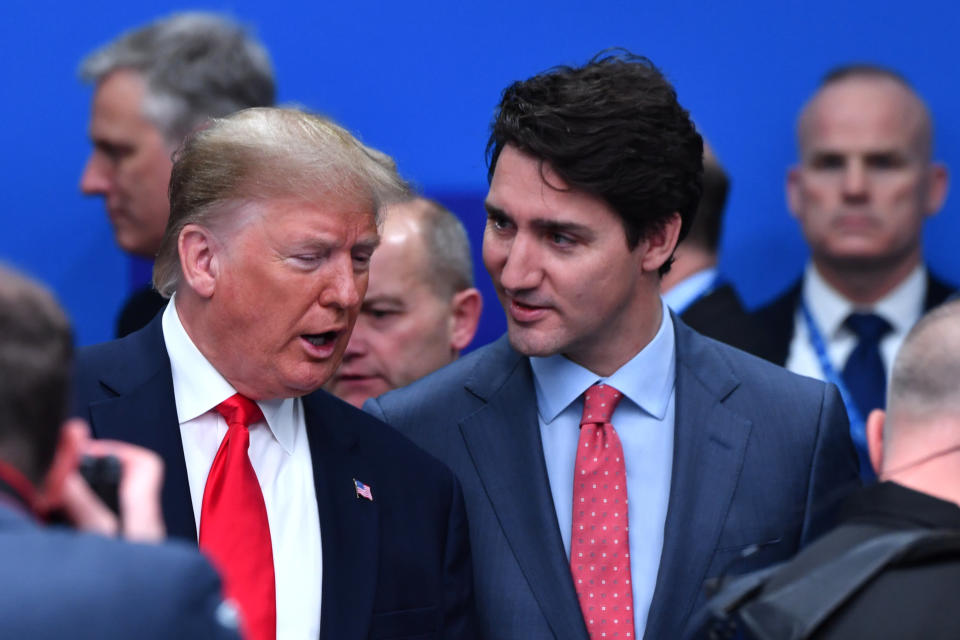U.S. departure from WHO another 'big headache for Canada'

The United States has filed paperwork to pull out of the World Health Organization (WHO) after citing it had been overtaken by China since the start of the pandemic. The U.S is no stranger to departing major global organizations, but the ramifications of this particular exit could prove costly for current member nations, including the U.S.’s closest ally, Canada.
“The solution is not pulling out, the solution involves partners including Canada and improving it. We cannot fight pandemics without the U.S.,” said Yves Tiberghien, professor of Political Science at the University of British Columbia and co-chair of the Vision 20 initiative, an organization working on global governance.
With an ongoing pandemic of COVID-19, no country has fared worse than the United States of America, but now the $500 million of research funding they used to supply to the WHO will stop as of July 6, 2021.
This is not the first time the U.S. under the leadership of President Trump has decided to leave a global deal or organization. In 2017, the U.S. withdrew from the United Nations Educational, Scientific and Cultural Organization (UNESCO) and one year later they departed from the United Nations Human Rights Council (UNHRC). The most well-known example is the U.S. pullout of the Paris Climate Accord, which will take place on November 4, one day after the Presidential Election. In this particular case, Tiberghien thinks the damage to the 194 countries could be quite expansive.
“It's particularly crippling and a demoralizing move because the U.S. is so critical to global health, so much of the research is done in the U.S., they provide a big chunk of the funding and it’s happened in the middle of a pandemic,” he said.
A series of problems
According to Tiberghien, the move to leave the WHO is one of the latest that has caused strife in the Canada-U.S. relationship. He points to the change in the North American Free Trade Agreement (NAFTA) and pulling out of the UN-approved JCPOA (Joint Comprehensive Plan of Action) on Iran.
“It’s a big headache for Canada. What we believe in is the WTO, having rules in trade, climate rules, a global health organization, defending democracy and human rights and our biggest partner in this whole endeavour is against all of that,” he said.
A 2018 poll by Pew Research showed that Canadians had a particularly low opinion of President Trump since he had come into office. The poll indicated only 25 per cent of Canadians rated Trump positively, while 63 per cent felt he was doing less than ever to address problems ongoing globally. Amongst those Canadians surveyed, a whopping 82 per cent felt the U.S. makes global policy decisions without ever considering Canada.
“The trust in the U.S. president amongst Canadians is amongst the lowest it’s ever been, it’s just been disappointing, but on the other hand we cannot run away because we’re physically attached,” he said.
The move by the U.S. to leave the WHO is made more significant as Tiberghien says there is a general consensus even amongst the biggest academic skeptics that health and pandemics need a strong and global response.
“It’s part of the absolute minimum level of cooperation or we cannot fight the pandemic. We know that there’s a potential of more viruses,” he said.
The move opens way for Canada to start to improve relations with other countries and while that would be a nice feather in the hat, Tiberghien admits it’s not the same as having the U.S. by your side.
“We can go work with Europe, Mexico, Japan but it doesn’t gel together...they don’t have the firepower that the U.S. does,” he said.
The WHO is not without fault however, as reporting has shown the organization was slow to report on its early findings within China. Part of that problem was the Chinese government had delayed passing on information to the World Health Organization for almost a week which led to increased transmission of COVID-19.
According to Tiberghien the biggest problems with the WHO are the lack of a rapid response team, which would have been effective to contain a virus like COVID-19. He adds the bureaucracy is another huge point of contention as there is a lack of ability to make decisions as there are 194 member countries and a general consensus can be tough to reach.
Despite their clear shortcomings, Tiberghien thinks the value of WHO far supersedes the problems and rather than pulling out of the WHO, the U.S. may want to think twice about increasing their funding.
“The WHO is critical as the only information-sharing organization to fight against pandemics. It’s not perfect and it does need reforms,” he said.

 Yahoo News
Yahoo News 
